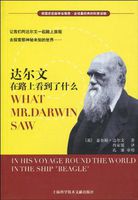But whatever may be the cause of sympathy, there is no doubt of the pleasure which the consciousness of a concord of feeling produces, and of the pain which arises from a sense of its absence. Some have accounted for this by the principle of self-love, by saying that the consciousness of our own weakness and our need of the assistance of others makes us to rejoice in their sympathy as an earnest of their assistance, and to grieve in their indifference as a sign of their opposition. But both the pleasure and pain are felt so instantaneously, and upon such frivolous occasions, that it is impossible to explain them as a refinement of self-love. For instance, we are mortified if nobody laughs at our jests, and are pleased if they do; not from any consideration of self-interest, but from an instinctive need and longing after sympathy.
Neither can the fact, that the correspondence of the sentiments of others with our own is a cause of pleasure, and the want of it a cause of pain, be accounted for entirely by the additional zest which the joy of others communicates to our own, or by the disappointment which the absence of it causes. The sympathy of others with our own joy may, indeed, enliven that joy, and so give us pleasure; but their sympathy with our grief could give us no pleasure, if it simply enlivened our grief. Sympathy, however, whilst it enlivens joy, alleviates grief, and so gives pleasure n either case, by the mere fact of the coincidence of mutual feeling.
The sympathy of others being more necessary for us in grief than in joy, we are more desirous to communicate to others our disagreeable passions than our agreeable ones. "The agreeable passions of love and joy can satisfy and support the heart without any auxiliary pleasure. The bitter and painful emotions of grief and resentment more strongly require the healing consolation of sympathy." Hence we are less anxious that our friends should adopt our friendships than that they should enter into our resentments, and it makes us much more angry if they do not enter into our resentments than if they do not enter into our gratitude.
But sympathy is pleasurable, and the absence of it distressing, not only to the person sympathized with, but to the person sympathizing. We are ourselves pleased if we can sympathize with another's success or affliction, and it pains us if we cannot. The consciousness of an inability to sympathize with his distress, if we think his grief excessive, gives us even more pain than the sympathetic sorrow which the most complete accordance with him could make us feel.
Such are the physical and instinctive facts of sympathy upon which Adam Smith founds his theory of the origin of moral approbation and our moral ideas. Before proceeding with this development of his theory, it is worth noticing again its close correspondence with that of Hume, who likewise traced moral sentiments to a basis of physical sympathy. "Wherever we go,"says Hume, "whatever we reflect on or converse about, everything still presents us with the view of human happiness or misery, and excites in our breast a sympathetic movement of pleasure or uneasiness." Censure or applause are, then, the result of the influence of sympathy upon our sentiments.
If the natural effects of misery, such as tears and cries and groans, never fail to inspire us with compassion and uneasiness, "can we be supposed altogether insensible or indifferent towards its causes, when a malicious or treacherous character and behaviour are presented to us?"CHAPTER III.MORAL APPROBATION, AND THE FEELING OF PROPRIETY.
Having analyzed the facts of sympathy, and shown that the correspondence of the sentiments of others with our own is a direct cause of pleasure to us, and the want of it a cause of pain, Adam Smith proceeds to show that the amount of pleasure or pain felt by one man in the conduct or feelings of another is the measure of his approbation or the contrary. The sentiments of any one are just and proper, or the reverse, according as they coincide or not with the sentiments of some one else who observes them. His approbation varies with the degree in which he can sympathize with them, and perfect concord of sentiment means perfect approbation.
Just as a man who admires the same poem or picture that I do, or laughs at the same joke, allows the justice of my admiration or mirth, so he, who enters into my resentment, and by bringing my injuries home to himself shares my feelings, cannot but thereby approve of them as just and proper.
According as his sympathetic indignation fails to correspond to mine, according as his compassion falls short of my grief, according, in short, to the degree of disproportion he may perceive between my sentiments and his, does he feel stronger or weaker disapproval of my feelings.
Moral approbation admits of the same explanation as intellectual approbation.
For just as to approve or disapprove of the opinions of others is nothing more than to observe their agreement or disagreement with our own, so to approve or disapprove of their feelings and passions is simply to mark a similar agreement or disagreement existing between our own and theirs.














